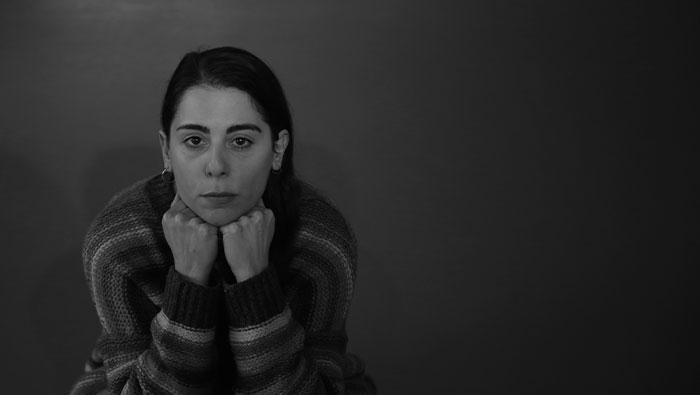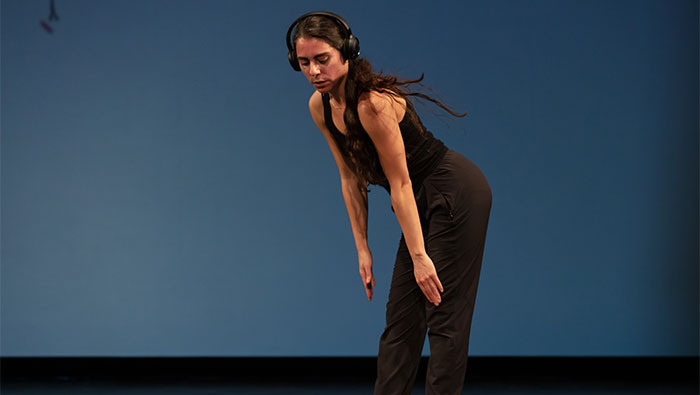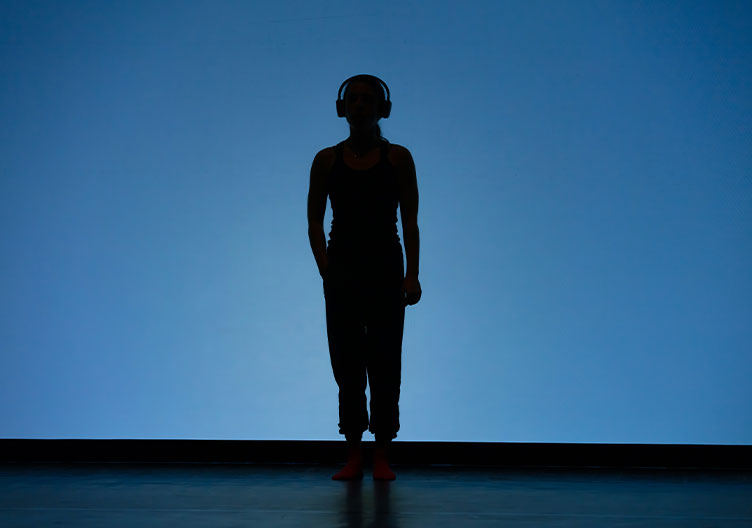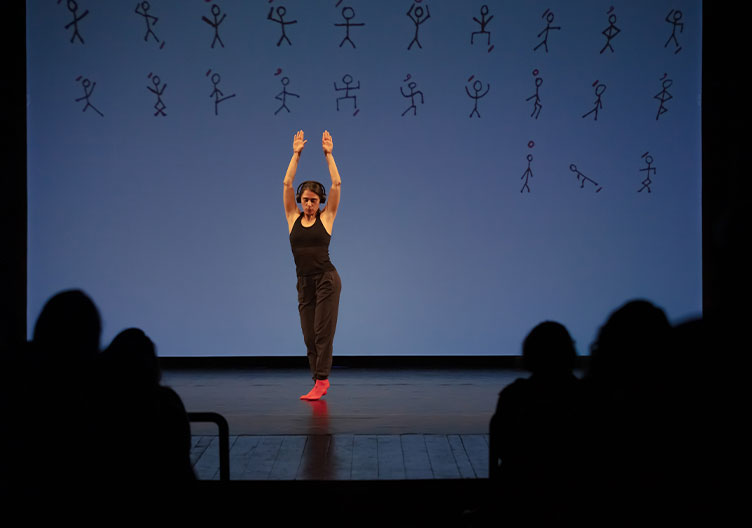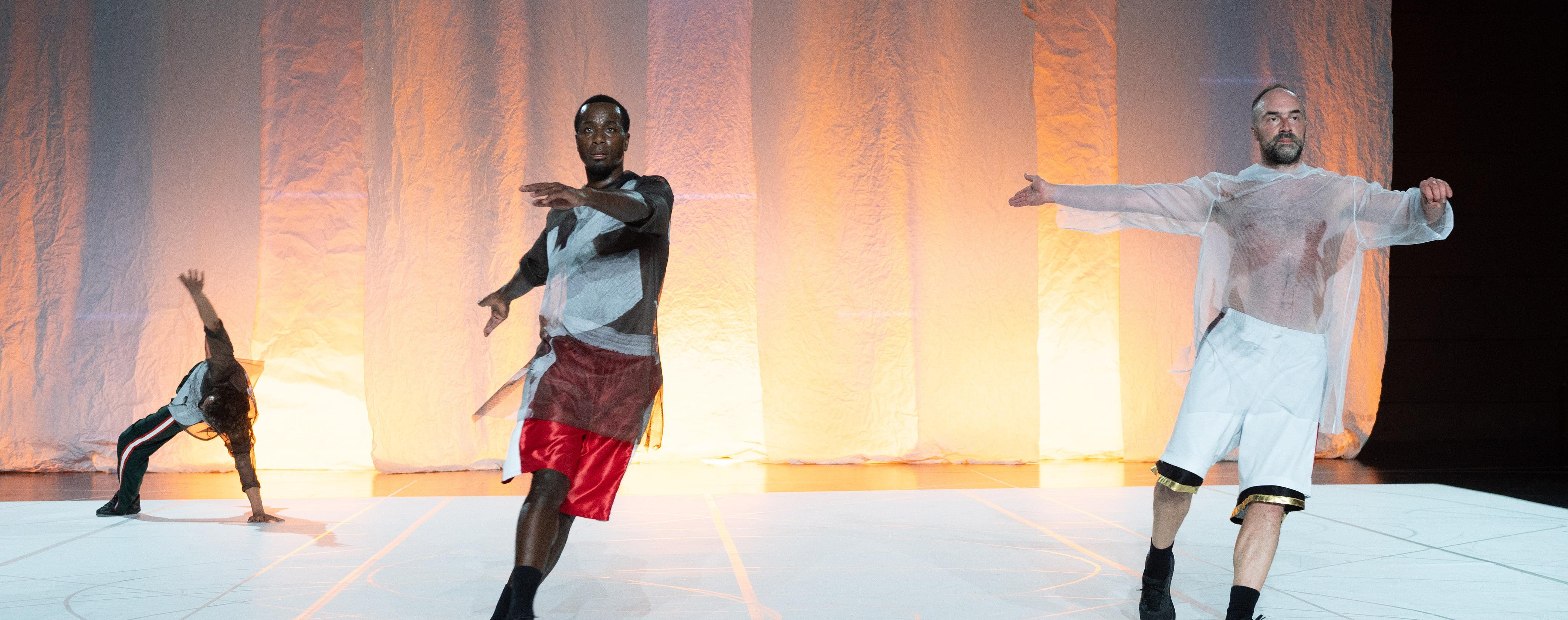It all began with the need for the young choreographer and performer to express herself, to work on different states of body and soul – the idea of the embrace, the notion of fracture, calm and openness – to match physical symbolism with linguistic symbolism. Whereas in the French language the diacritical mark accompanies a letter or a grapheme (a dot, an accent, a cedilla), in Arabic it indicates vocalization. Some words are written in the same way, but their meaning differs depending on their accentuation. On stage, Nivine Kallas uses her body, first in organic movements then in the expression of intimate feelings, elaborating an unprecedented choreographic vocabulary. Wearing headphones, sharing Arab pop music from the 1970s and 1980s with the audience, with drawings projected in the background, she immerses herself in these different states with complete freedom of improvisation, opening up her inner space to the audience. With her, we connect to the movements of the universe, to its rhythms and constantly changing biological cycles. After two years of research and a preview in Beirut, Nivine Kallas is "on the path that seems right for [her]” with a performance based on the changing and maturing state of the body, permeable to events and the environment.
Les représentations à Marseille reçoivent le soutien de l’Institut français du Liban.




